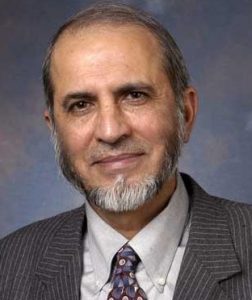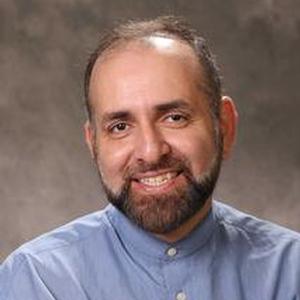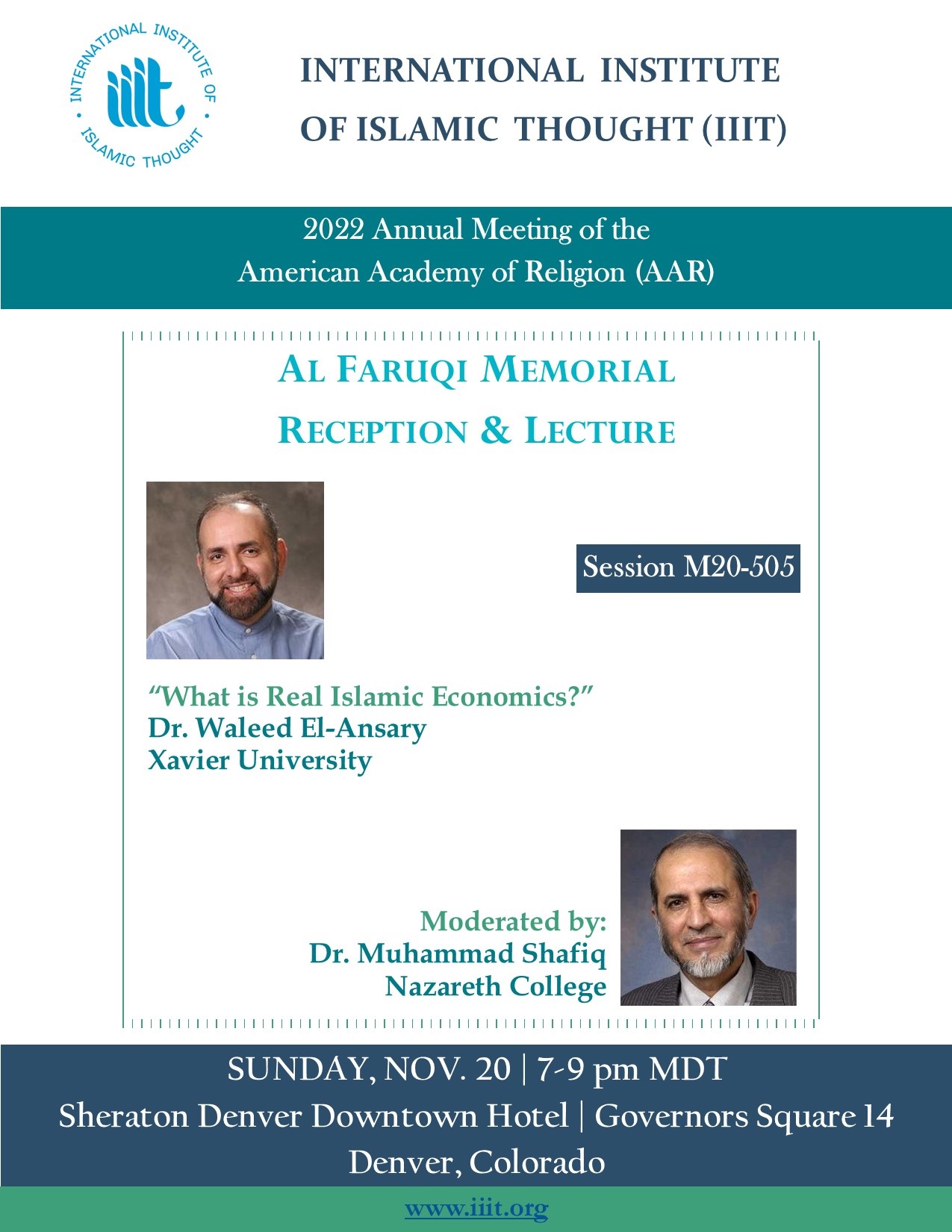Dr. Waleed El-Ansary is the Helal, Hisham and Laila Edris El-Swedey University Chair in Islamic Studies at Xavier University, where he teaches courses on comparative religion, Islamic studies, and religion and science. He holds a Ph.D. in Islamic and Religious Studies from George Washington University and M.A. in Economics from the University of Maryland. His research focuses on the intersection of religion, science, and economics. He has authored numerous publications, including “Islamic Environmental Economics and the Three Dimensions of Islam” in his co-edited volume Muslim and Christian Understanding: Theory and Application of A Common Word. Other recently published articles include his “Can Our Science and Economics Honor Nature?” in the inaugural issue of Renovatio and “Hindu and Islamic Economics: On the Need for a New Economic Paradigm” in a special issue of The Muslim World devoted to Hindu-Muslim relations. His most recent book with Alexis Blum, Grand Rabbi Emeritus of Neuilly, and Bishop Claude Dagens, Bishop of Angouleme, is Knowing the Religion of the Other, which was arranged through the UNESCO-based Aladdin project to help train young rabbis, priests/preachers, and imams (as well as any other interested parties) about the Abrahamic traditions for greater mutual understanding and peace. The French edition has been published, the English edition is forthcoming shortly, Hebrew and Arabic translations are underway, and the Vatican is translating the book into Italian.
Abstract
What Is Real Islamic Economics?
Leading Muslim economists argue that in spite of thousands of conference papers, journal articles, book chapters, and monographs, “Islamic economics does not seem to be moving forward,” that “the end product is not significantly different from mainstream economics,” that the discipline has been “unable to break any ground,” is still “a mission unaccomplished,” and is overall “a failure” despite some partial successes. Indeed, a great deal of confusion remains over the essential question, “What makes economics ‘Islamic’ ”? This discussion suggests an answer to this question in terms of the Islamic sciences of nature and their implications for production and exchange processes to move the discipline forward. Islamic economics views the natural world as manifesting God’s blessings and bounties (fadl) in the context of reflecting His Perfect Names and Qualities (ayat Allah). There is a profound resonance between knowledge and the creative act in this traditional Islamic perspective, and this is rooted both in man’s role as a reflection of Divine Attributes as well as in the inverse relation that exists between the creative act of God and that of man. God’s creative act or “art” results in the manifested order; it is an externalization whereas the art of man is an internalization. The act of Divine creation brings into existence that which is made by God. The creative act of the human is in a sense a process that returns the maker to his or her inner essence wherein spiritual knowledge is realized. There is thus an intimate connection between work, spiritual realization, and protecting God’s creation in fulfilling a hierarchy of spiritual and other needs. From this point of view, the modern world’s ecological crises and socio-economic disequilibrium result from its reductionist, mechanistic, and materialistic worldview that desacralizes work and does injustice to man and threatens nature by treating both as resources rather than the sacred creations they are. Moreover, modern, mainstream economic theory fails to recognize the full extent of “market failures” because it does not recognize that the unicity or interrelatedness of creation reflects the unity of the Divine Principle. And government attempts to correct market failures themselves routinely fail because of special interest groups operating under desacralized production processes without a proper theology of work. Thus, economics is not a “separate domain” from the rest of social life which requires the balancing of self-interest with social considerations for beneficent outcomes, contrary to the claims of mainstream economic thought. This study of Islamic economics—rooted in its metaphysical and cosmological sciences—reveals a path to ecological and socio-economic equilibrium by recovering the Islamic intellectual heritage and establishing corresponding Islamic scientific, technological, economic, and other social structures that integrate the findings of science into higher orders of knowledge for spiritually meaningful work, vocational occupations, and integral development.




